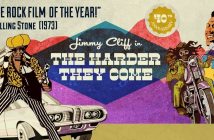A behemoth picture that still looks and sounds incredible, Inception is the red wine of the 21st century blockbuster bar.
-
10
A whole decade has passed since Christopher Nolan, hot off the juggernaut success of The Dark Knight, blitzed the world with Inception. Grossing over $820 million worldwide, this bitingly original film was, thanks to its complex ideas and brilliant special effects, a must-see experience. Since that July in 2010, Nolan has concluded his Batman trilogy with The Dark Knight Rises, made a hugely ambitious space epic in Interstellar, constructed an arthouse war film in Dunkirk, and a (slightly delayed) mysterious spy thriller in Tenet. But it is Inception that remains Nolan’s most ‘Nolan’ film and perhaps his greatest accomplishment to date.
Leonardo DiCaprio spearheads an international ensemble as Dom Cobb, a thief who commits his robberies deep in the dreams of his targets. It’s a thrillingly unique concept, one that is entirely dependent on vast swathes of exposition. Thankfully, Ellen Page’s Ariadne (the aptly named maze architect) is on hand as the audience surrogate, asking her peers the questions bouncing around the audiences’ brains. No other film gets away with this much constant explanation, but the premise is so ridiculously fascinating that there is an addictive quality to consuming more dream related knowledge.
Cobb is hired by Saito (Ken Watanabe) to undergo a new job: rather than extract information, Cobb must plant an idea in his target’s (Cillian Murphy) dreams, a notion considered impossible. Nolan frames this science-fiction thriller under the structure of a heist film, taking his time mapping out the intricate details of the operation to keep his audience on the right side of understanding.
In a cinema the emotional response to Inception is enhanced to something akin to an epiphany. The film’s legendary and ground-shaking set pieces inspire a whole new sense of awe: the Mombasa chase, the folding city and the seriously impressive rotating hallway fight just become the apotheosis of big screen filmmaking. It takes one thing to imagine physics-bending sequences but something else entirely to create them with minimal CGI.
Nolan rightfully receives the most acclaim for this colossal convergence of blockbuster-meets-auteur but there are two other worthy heroes of the film’s success: editor Lee Smith and music composer Hans Zimmer. The juggernaut final hour intertwines the numerous dream layers, ensuring the audience gets both a grasp of the different time ‘zones’ and the effects that trickle down through each dream. The cutting between the ensemble is simply masterful, and Zimmer’s Oscar-snubbed score is one of his greatest accomplishments.
To see Inception as merely a high concept piece of technical filmmaking is to the detriment of the character work on display. In Cobb, DiCaprio’s conflicted widower supplies both the emotional beats as a father who wants to see his children again and the high stakes as the projection of his dead wife Mal (Marion Cotillard) becomes an invasive presence in the dream world: a pure femme fatale. By paralleling Cobb’s emotional arc with the increased threat, Nolan keeps the action and scope grounded in character. It is an underrated DiCaprio performance; the final look he gives Saito in particular is fantastic. The vital relationship between Cillian Murphy’s character and his father is also one that hits the feels; reaching its zenith in a moment of indescribable catharsis.
A highly overlooked aspect of the film is the relationship between Tom Hardy’s creative forger Eames and Joseph Gordon-Levitt’s narrow-minded Arthur. Their exchanges are delightful with Eames being critical of Arthur’s lack of imagination – Arthur uses pre-existing dream techniques such as the Penrose stairs as opposed to anything inventive. However, when things go inevitably off-plan in the climax, Arthur does think independently to stage a ‘kick’, overcoming his fear of spontaneity.
Some time prior to this, Eames comments to Arthur, “never be afraid to dream a little bigger, darling” before exploding a gunman with a grenade launcher. The line demonstrates the icy relationship between the two but overtime it has come to manifest itself as something more: a challenge. It isn’t too far-fetched to imagine it as Nolan’s way of telling his fellow filmmakers and other studios to embrace originality, and by trusting an audience to keep up intellectually and narratively guarantees the lasting popularity that Inception has deserved a decade on.
Inception, directed by Christopher Nolan, is distributed in the UK via Warner Bros Pictures, certificate 12A. It is out now in cinemas for a limited time, and is available on DVD/Blu-ray and to rent on all digital platforms.




